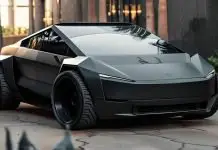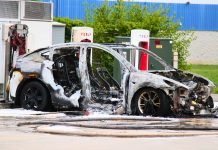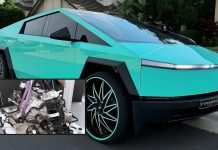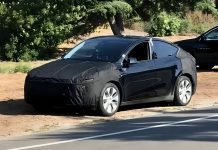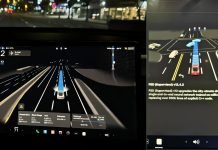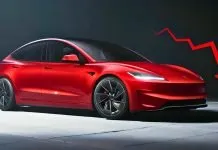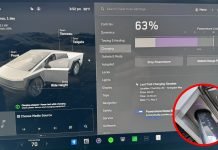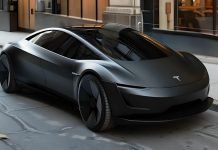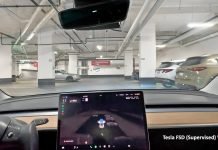With a keen eye on Tesla’s remarkable success in the electric vehicle (EV) market, the newly appointed CEO of Toyota is strategically planning a next-generation EV platform push.
While maintaining a grudging admiration for Tesla’s accomplishments, Toyota recognizes the urgent need to make a significant leap forward in the fully electric vehicle segment.
Despite boasting a rich history of expertise in electrification dating back to the pioneering days of the Prius hybrid, Toyota acknowledges that a paradigm shift is required to thrive in this new era of automotive innovation. Toyota and Ford’s partnership to work on hybrid over a decade ago for standards and telematics was instrumental enough if you compare it with the current scenarios.
Harnessing their vast technological prowess, the Japanese automaker aims to develop an advanced and cutting-edge EV platform that not only competes with but surpasses the standards set by industry leaders like Tesla.
This ambitious project showcases Toyota’s decision to secure a prominent position in the rapidly evolving and fiercely competitive EV landscape.
Let’s shed some light on how Toyota eyes standardization partnership amidst the recent hype of the Tesla and Ford charging standardization partnership.
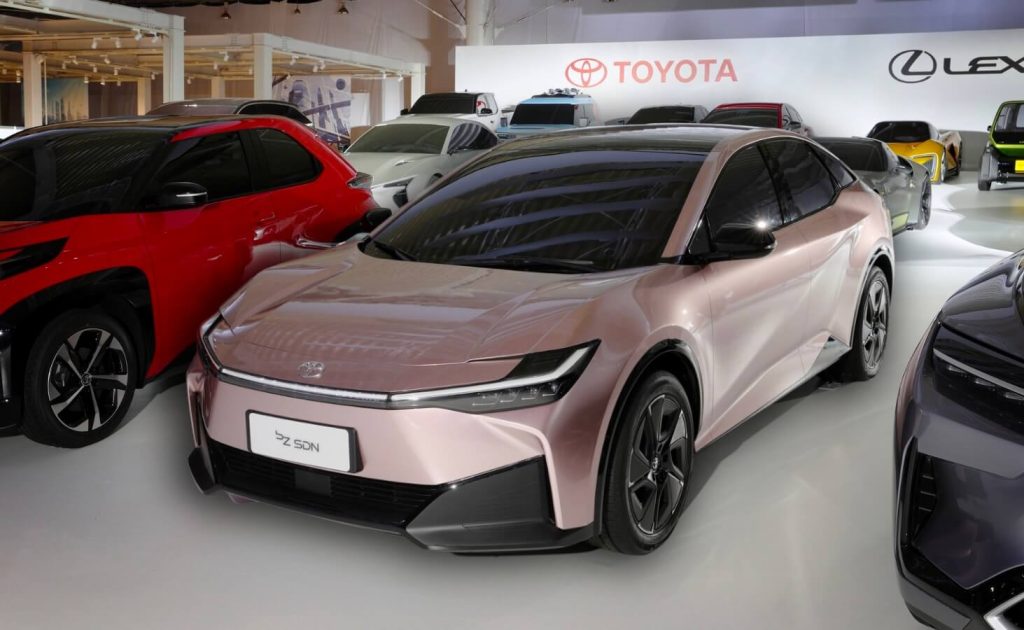
Table of Contents
Charging Standardisation War
In a momentous collaboration, General Motors CEO Mary Barra and Tesla CEO Elon Musk jointly announced that General Motors would adopt NACS (North American Charging Standard) as the designated connector for its forthcoming electric vehicles. Toyota is still lagging behind in the race to electric panache but adds to the
As the world rages over the new charging standardization war among the top auto players in the industry, the news comes as a surprise marking a significant turning point for EVs in the United States.
This move followed a similar agreement between Ford and Tesla in May, and more recently, Rivian announced that its customers would be able to utilize Tesla’s charging network starting in 2024.
These collaborations have the potential to trigger profound ripple effects in the development of the charging infrastructure nationwide.
However, these partnerships have also given rise to numerous questions that outweigh the available answers. Will these alliances spark a standards war among different types of EV chargers, and how will this impact consumers?
The opinions of experts diverge on this matter, leading to varying predictions regarding the implications of this news. It could pave the way for a new charging model akin to traditional gas stations, revolutionizing the EV charging experience.
Conversely, it might be perceived as a minor development, yet providing drivers with an expanded array of charging options. The true outcome of these partnerships remains to be seen, leaving the future of the charging network open to speculation and uncertainty.
Toyota on Future of EVs
Toyota, the renowned Japanese car manufacturer and the global leader in automotive production, has made a momentous declaration by shifting its focus towards battery electric vehicle (BEV) technology.
With the introduction of a dedicated BEV factory, Toyota aims to spearhead the development of revolutionary and evolving batteries that cater to consumer expectations while simultaneously driving down the long-term cost of BEVs.
Toyota has set ambitious goals for its next-generation square batteries, claiming that by 2026, these batteries will enable electric vehicles (BEVs) to achieve an impressive cruising range of 1000 km (approximately 620 miles). The company’s focus on enhancing driving range efficiency not only includes improvements in battery aerodynamics but also emphasizes weight reduction and faster charging times.
By prioritizing BEV technology, Toyota not only aims to meet the growing demand for electric vehicles but also aims to enhance their affordability, making them accessible to a broader consumer base.
This development is promising news for consumers seeking extended driving ranges and improved convenience in charging their vehicles. Moreover, Toyota aims to reduce costs by 20 percent, making BEVs more affordable and accessible to a wider range of customers. Or maybe give Tesla and other automakers a run for their money.
Toyota Charging Standard: Will Toyota Join Hands With Tesla?
Under the inspiring motto “Let’s Change The Future of Cars,” Toyota is diligently focused on revolutionizing the landscape of battery electric vehicles (BEVs). With a firm focus to enhance vehicle line-up and overall performance, the premier automaker seeks to propel the capabilities of BEVs to new heights with the new approach.
Toyota’s extensive experience in lithium-ion technology to introduce next-generation batteries. These innovative batteries will not only advance the existing hybrid electric vehicle (HEV) technology but also lay the foundation for BEV manufacturing.
According to group manager Todd Runtima, Toyota aims to lead the charge in creating a sustainable approach to enter into the electric vehicles fort, by driving the hybrid phase a bit longer.
But will they join hands with another big player? Maybe. But will Toyota rule the electric market?
Although Toyota may not immediately close the gap with other manufacturers in the electric car race, it’s important to recall the transformative manufacturing revolution the company spearheaded in the 1970s.
Back then, Toyota revolutionized the industry by introducing lean manufacturing principles that reshaped the world. Their innovations, including the “Just-In-Time” Kanban system, “Kaizen” continuous improvement, and 5S organizational housekeeping, enabled Toyota to establish a dominant presence in the global car market for more than five decades.
While Toyota may have joined the electrification movement later than some competitors, its formidable legacy and capabilities provide a strong foundation for the company to regain a leading position in the market for the next 50 years.
Toyota’s proven ability to adapt and innovate positions makes them a strong contender to rule the electric pinnacle.
Electreon, Toyota, and Denso Charging Collaboration
Electreon, Toyota Motor Corporation, and Denso Corporation have recently reached an agreement to collaborate on the development of an advanced wireless vehicle charging kit utilizing Electreon’s existing technology.
Following a successful comprehensive technology evaluation conducted in Israel, with the active participation of technical teams from Toyota and Denso, the three entities are poised to revolutionize the automotive industry.
This joint effort holds the potential to provide a smart and efficient solution for charging electric vehicles (EVs), marking a significant step forward in the field. The collaboration showcases the shared dedication of Electreon, Toyota, and Denso to push the boundaries of technology and offer innovative solutions to customers.
Over the coming months, the parties will finalize a detailed joint development agreement, setting the stage for the future of EV charging.
What To Expect In The Future?
Toyota’s position on charging technology and standards is currently being evaluated, and no official announcement has been made yet. It is common for companies to develop their own proprietary charging systems in the early stages of new technologies. However, as the industry matures, standardization often emerges to facilitate compatibility and convenience.
While Toyota’s approach remains uncertain, the industry trend toward standardization is a possibility for the future. The need for standardized charging infrastructure is crucial to address the challenges faced by electric vehicle owners, particularly when it comes to finding accessible and fast-charging stations for long-distance journeys.
Toyota acknowledges the significance of overcoming this limitation in pure EVs and is actively engaged in enhancing charging infrastructure to enhance convenience for electric vehicle users.
Over the past couple of decades, Toyota and its executives have consistently expressed a lack of enthusiasm for electric vehicles (EVs), a stance that may appear contradictory given the automaker’s reputation as a pioneer in green cars.
Toyota’s noteworthy achievement in 1997 with the introduction of the Prius, the first widely available hybrid vehicle combining battery and gasoline power, positioned them as a trailblazer in catering to environmentally conscious drivers.
While Toyota acknowledges its role in advancing hybrid technology, its reservations about fully electric vehicles have been evident.
Despite this apparent contradiction, Toyota’s history in hybrid vehicles cannot be overlooked, and it continues to shape the hydrogen trajectory. In fact, according to recent reports, Toyota plans to swiftly move to electric going the plug-in hybrid first and pure EVs later.
Bottomline
The ongoing charging standardization war in the EV industry has sparked significant interest and debate among industry leaders. The collaboration between General Motors, Ford, and Rivian with Tesla’s charging network reflects a notable shift towards cooperation and interoperability.
While the outcome and impact of these partnerships are uncertain, they have the potential to revolutionize the charging infrastructure and provide consumers with more convenient and accessible options.
As for Toyota, although it may have been late to fully embrace electric vehicles, its recent attention to battery electric vehicle (BEV) technology and the establishment of a dedicated BEV factory demonstrate its determination to shape the future of sustainable transportation.
What do you think is going to happen in the future about charging standardization and will Tesla launch their promised EVs soon or stick to hybrid solutions?

